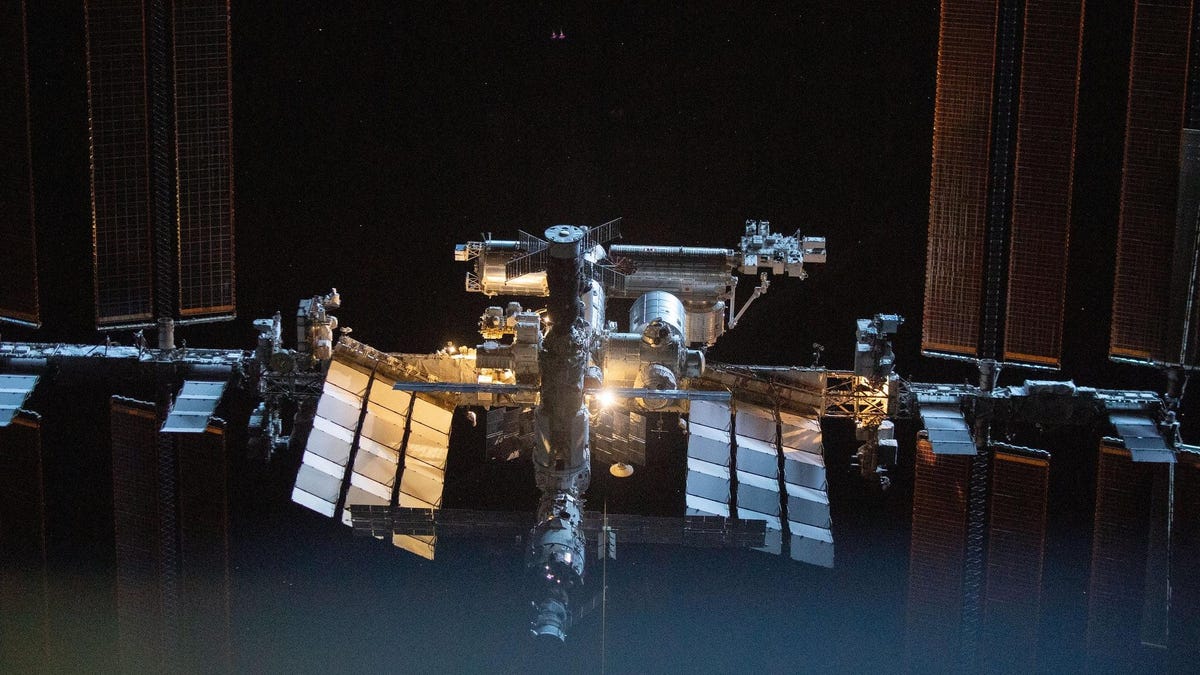
As NASA looks into the most recent incident of a leak from the International Space Station (ISS), two spacewalks have been delayed until ongoing investigations are complete.
NASA postponed spacewalks that were originally scheduled for Thursday, October 12 and Friday, October 20, with new dates for the extravehicular activities to be announced later, the space agency wrote in a blog update on Wednesday.
Advertisement
Earlier this week, flight controllers at NASA’s mission control noticed that the backup radiator on Russia’s Nauka module was leaking coolant into low Earth orbit. Although the leak has now stopped, NASA engineering and flight control teams are still reviewing data and video of the incident to investigate the cause of the radiator malfunction.
Advertisement
The module’s main radiator is still working normally, cooling the temperatures for the crew on board the ISS. So far, NASA has said that the crew is not in danger and that ISS operations are being carried out normally. Well, save for the delayed spacewalks.
Advertisement
The backup radiator was delivered to the ISS in 2010 and transferred to the Nauka module during a Roscosmos spacewalk in April. The module itself was added to the ISS in July 2021.
This is the third time a leak has sprung from Russian hardware attached to the ISS. In December 2022, ground teams observed a fountain of particles pouring out from a Soyuz spacecraft docked to the ISS. The spacecraft carried NASA astronaut Frank Rubio and Roscosmos cosmonauts Sergey Prokopyev and Dmitri Petelin to the ISS in September 2022, and was supposed to transport them back home in the spring of this year. Due to the leak, however, the trio’s stint on the ISS was extended by another six months.
Advertisement
At the time, Russia attributed the first leak to a micrometeorite strike on the spacecraft. Shortly after, however, a Russian Progress 82 freighter docked to the ISS also began leaking coolant in February. Russia’s space agency again claimed that it was caused by an external impact but the second incident put the integrity of both Russian spacecraft into question, with suspicion emerging that there are common manufacturing defects or something having to do with launch preparations.
Now, with the third incident of a coolant leak in less than a year, Roscosmos has some explaining to do.
Advertisement
For more spaceflight in your life, follow us on X (formerly Twitter) and bookmark Gizmodo’s dedicated Spaceflight page.
Services Marketplace – Listings, Bookings & Reviews